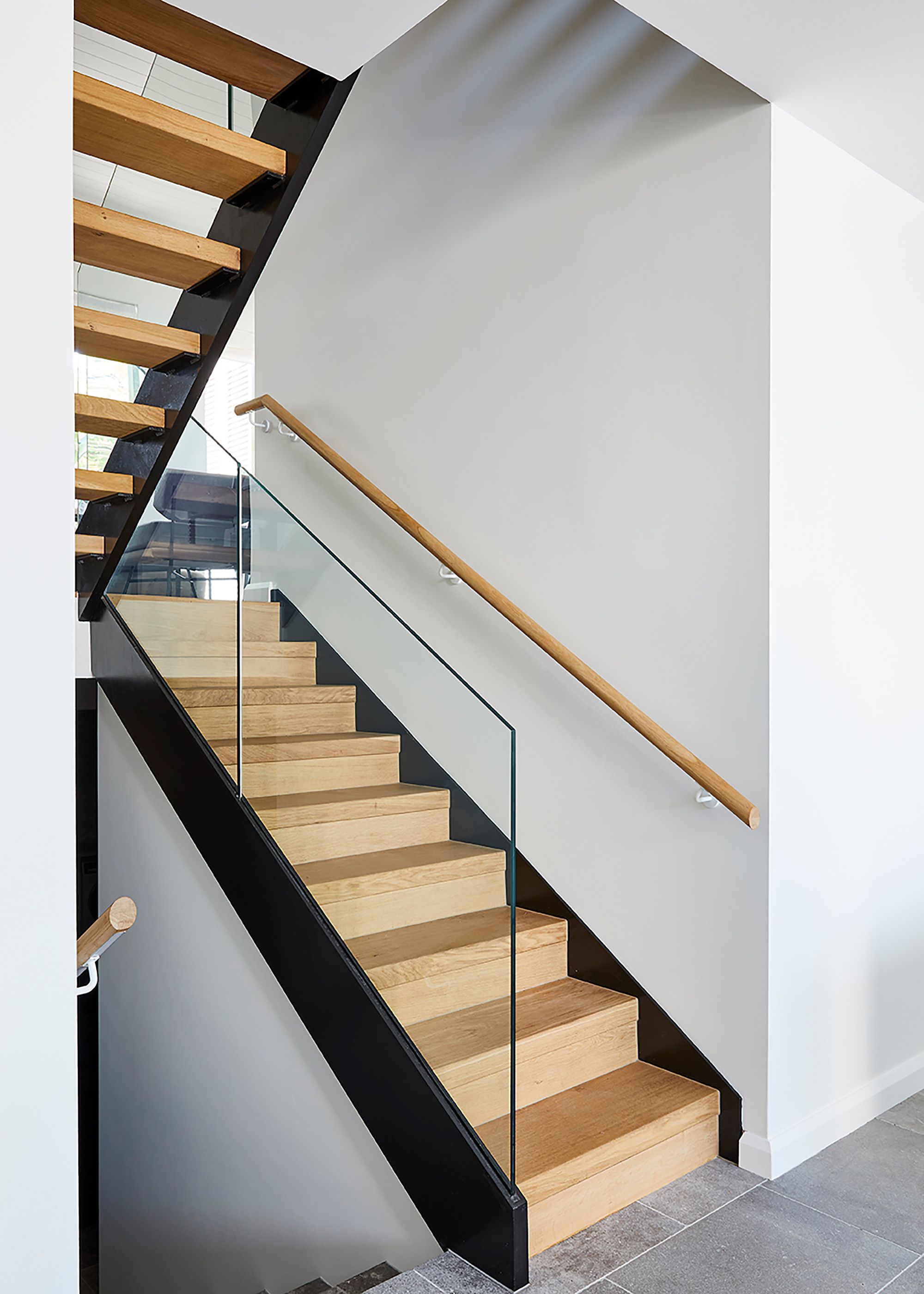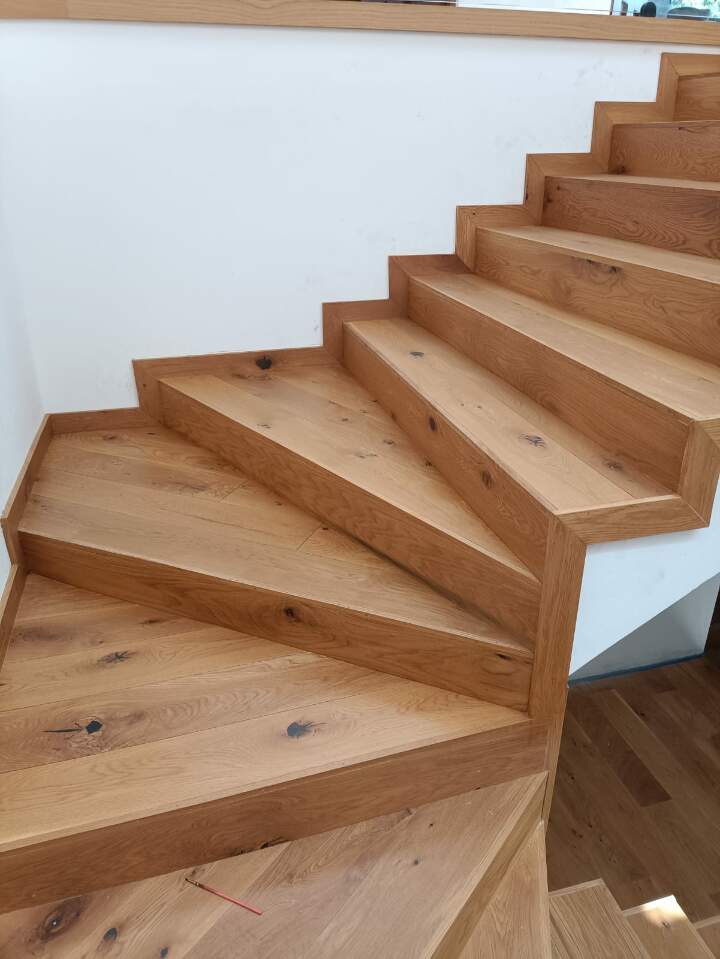Wooden stairs have become an increasingly popular choice for homeowners looking to enhance the aesthetic appeal and value of their property. These elegant structures offer a classic and sophisticated look that complements various interior designs. Whether you're renovating an existing space or building a new home, wooden stairs provide a durable and stylish option that stands the test of time.
Wood has long been prized for its natural beauty and versatility, making it an ideal material for stair construction. With numerous wood species, finishes, and design options available, homeowners can create custom solutions that perfectly match their vision. Beyond aesthetics, wooden stairs also offer practical advantages, including durability, ease of maintenance, and environmental friendliness.
This comprehensive guide will explore everything you need to know about wooden stairs, from their benefits and design options to installation considerations and maintenance tips. Whether you're a homeowner, architect, or contractor, this article will provide valuable insights to help you make informed decisions about incorporating wooden stairs into your projects.
Read also:Teamsters Local 25 A Comprehensive Guide To One Of Americas Strongest Labor Unions
Table of Contents
- Introduction to Wooden Stairs
- Benefits of Choosing Wooden Stairs
- Design Options and Customization
- Types of Wooden Stairs
- Wood Species and Material Considerations
- Cost Factors and Budget Considerations
- Installation Process and Tips
- Maintenance and Care
- Current Trends in Wooden Stair Design
- Conclusion and Final Thoughts
Introduction to Wooden Stairs
Wooden stairs represent more than just a functional element in home design; they serve as a statement piece that can significantly impact the overall aesthetic and value of a property. According to a report by the National Association of Home Builders, homes with high-quality wooden staircases tend to command higher resale values compared to those with standard stair options.
Why Choose Wooden Stairs?
There are several compelling reasons why wooden stairs have become a preferred choice among homeowners and architects:
- Timeless beauty that complements both traditional and modern designs
- Excellent durability and structural integrity
- Customizable options for unique designs
- Sustainable and eco-friendly material
These advantages make wooden stairs a versatile and appealing option for various architectural styles and interior design preferences.
Benefits of Choosing Wooden Stairs
The advantages of wooden stairs extend beyond their visual appeal. These structures offer a range of practical and environmental benefits that make them an excellent investment for any home or commercial space.
Environmental Friendliness
Wood is a renewable resource that, when sourced responsibly, contributes to sustainable building practices. According to the U.S. Forest Service, responsibly managed forests can sequester carbon, helping to mitigate climate change. Choosing wooden stairs supports environmentally conscious construction practices.
Durability and Longevity
Properly maintained wooden stairs can last for decades, providing reliable service and maintaining their aesthetic appeal over time. Hardwood species like oak, maple, and walnut are particularly prized for their strength and resistance to wear and tear.
Read also:Discover The Charm Of Mt Olive Il A Comprehensive Guide
Design Options and Customization
One of the most significant advantages of wooden stairs is the virtually limitless design possibilities they offer. From straight-run stairs to spiral and cantilevered designs, homeowners can choose from a wide array of configurations to suit their space and style preferences.
Popular Design Styles
- Straight-run stairs: Ideal for linear spaces and straightforward navigation
- L-shaped stairs: Offer a space-saving solution with a turn
- Spiral stairs: Provide a unique, space-efficient option
- Cantilevered stairs: Create a modern, minimalist look
Design customization allows homeowners to integrate wooden stairs seamlessly into their interior design schemes, creating a cohesive and aesthetically pleasing environment.
Types of Wooden Stairs
Understanding the different types of wooden stairs is essential for making an informed decision about which option best suits your needs. Each type offers distinct advantages and design possibilities.
Open Risers vs. Closed Risers
Open riser stairs feature gaps between each step, creating a more open and airy feel. Closed riser stairs, on the other hand, have solid panels between steps, providing a more traditional appearance and increased safety.
Materials and Finishes
Various wood species and finishes can be used to create unique looks and textures. Popular choices include:
- Oak: Known for its strength and classic appearance
- Maple: Offers a smooth, light-colored finish
- Walnut: Provides a rich, dark tone
- Cherry: Features a warm, reddish hue that deepens with age
Wood Species and Material Considerations
Selecting the right wood species is crucial for achieving the desired aesthetic and performance characteristics. Different woods offer varying levels of durability, grain patterns, and color options, making it essential to choose wisely based on your specific needs.
Factors to Consider
- Hardness and durability
- Grain pattern and texture
- Color and finish options
- Resistance to moisture and environmental factors
Consulting with a professional stair designer or manufacturer can help ensure you select the best material for your project.
Cost Factors and Budget Considerations
The cost of wooden stairs can vary significantly based on several factors, including the type of wood, design complexity, and customization options. Understanding these cost factors can help you plan your budget effectively.
Key Cost Influencers
- Wood species: Exotic woods tend to be more expensive than domestic options
- Design complexity: Custom designs and intricate details increase costs
- Installation requirements: Complex installations may require specialized labor
According to a report by HomeAdvisor, the average cost of installing wooden stairs ranges from $1,500 to $5,000, depending on these factors. Working with a reputable contractor can help ensure you receive a fair price for your project.
Installation Process and Tips
Proper installation is critical to ensuring the safety and longevity of your wooden stairs. While some homeowners may attempt a DIY approach, hiring a professional is often the best choice for more complex designs.
Steps to Successful Installation
- Measure and plan the space carefully
- Choose appropriate materials and finishes
- Follow safety guidelines during installation
- Conduct thorough quality checks after installation
Working with experienced professionals can help ensure your wooden stairs are installed correctly and meet all safety standards.
Maintenance and Care
Regular maintenance is essential to preserving the beauty and functionality of your wooden stairs. Proper care can extend the lifespan of your stairs and maintain their aesthetic appeal over time.
Maintenance Best Practices
- Clean regularly with a soft cloth or vacuum
- Avoid using harsh chemicals that can damage the finish
- Apply protective coatings as recommended by the manufacturer
- Inspect periodically for signs of wear or damage
By following these maintenance tips, you can ensure your wooden stairs remain in excellent condition for years to come.
Current Trends in Wooden Stair Design
Wooden stair design continues to evolve, with new trends emerging that reflect changing tastes and technological advancements. Some of the most popular trends include:
Minimalist Designs
Simple, clean lines and open risers are becoming increasingly popular, creating a modern and airy feel in interior spaces.
Sustainable Materials
Homeowners are increasingly prioritizing eco-friendly options, choosing responsibly sourced woods and non-toxic finishes.
Customization and Personalization
More homeowners are opting for custom designs that incorporate unique elements, such as integrated lighting or artistic handrails.
Conclusion and Final Thoughts
Wooden stairs offer a timeless and elegant solution for enhancing the aesthetic and functional aspects of any space. Their durability, versatility, and environmental friendliness make them an excellent choice for homeowners and designers alike. By understanding the various design options, cost factors, and maintenance requirements, you can make informed decisions about incorporating wooden stairs into your projects.
We invite you to share your thoughts and experiences with wooden stairs in the comments section below. Your feedback can help others make better decisions about their stair installations. Additionally, feel free to explore our other articles on home design and construction for more valuable insights.
For further reading and research, consider consulting the following sources:
- National Association of Home Builders
- U.S. Forest Service
- HomeAdvisor
Thank you for reading, and we hope this guide has provided you with the information you need to make confident decisions about wooden stairs for your home or project.


